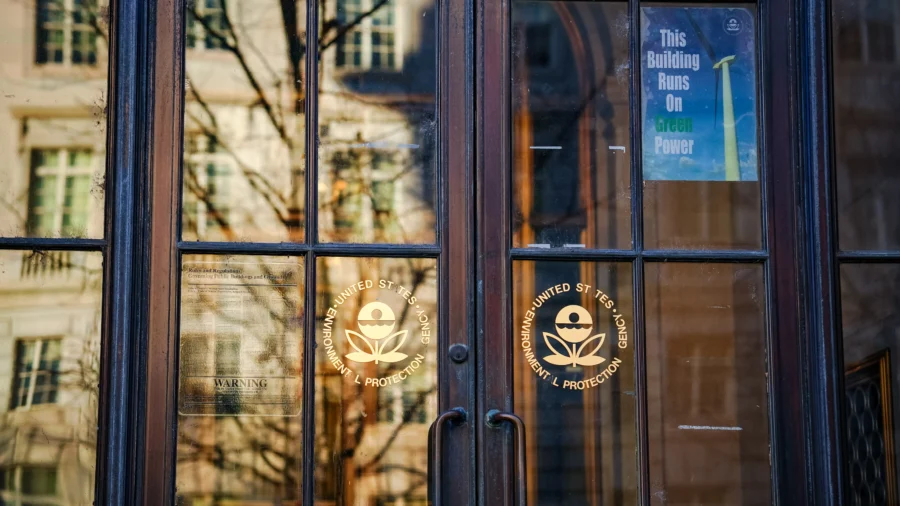The U.S. Environmental Protection Agency (EPA) announced a ban on the use of the herbicide DCPA, also known as Dacthal, in a bid to protect the health of unborn infants.
DCPA is registered for use in the United States to control weeds in both agricultural and nonagricultural processes. It is mainly sprayed on crops such as Brussels sprouts, broccoli, onions, and cabbage, the agency said.
On Aug. 6, the EPA announced an emergency suspension of all DCPA registrations, banning the use of the chemical. The agency is taking this action because “unborn babies whose pregnant mothers are exposed to DCPA, sometimes without even knowing the exposure has occurred, could experience changes to fetal thyroid hormone levels.”
Such changes “are generally linked to low birth weight, impaired brain development, decreased IQ, and impaired motor skills later in life, some of which may be irreversible,” said the agency.
The EPA estimates that some pregnant women handling DCPA products could end up being exposed to up to 20 times higher levels of the herbicide than what the agency has deemed safe for unborn babies.
Another key concern is the risk to unborn babies when pregnant women enter or work in areas where DCPA has already been applied, including during weeding, transplanting, and harvesting of crops.
At present, regulations dictate that such work should only begin 12 hours after DCPA application. However, the EPA found that DCPA can remain in a treated field at unsafe levels for 25 days or more.
A third area of concern is that when pesticides such as DCPA are sprayed, they can transfer to nearby places and put women who live in these regions at risk.
“DCPA is so dangerous that it needs to be removed from the market immediately,” said Michal Freedhoff, assistant administrator for the Office of Chemical Safety and Pollution Prevention.
“It’s EPA’s job to protect people from exposure to dangerous chemicals,” she stated. “That’s why for the first time in almost 40 years, EPA is using its emergency suspension authority to stop the use of a pesticide.”
Reaction From Stakeholders
In June 2023, the EPA published a draft occupational and residential risk assessment about DCPA and accepted public comments about the document.
In its comment, the Arizona Pest Management Center warned that costs of weed control for farmers would “no doubt” grow if registrations for DCPA were lost.
Farmers would have to shoulder the cost of additional herbicide applications and hire more people for hand weeding, it said. In addition, there could be losses in the form of potential yields without applying the chemical.
“Costs for hand weeding have increased significantly in recent years. Costs can range from $50 to $100/acre. In addition, the region has experienced labor shortages in recent years, like other areas of the country,” the center said.
The Environmental Working Group (EWG) welcomed the ban on DCPA and said it’s “long overdue.”
“For years, EWG and other public health advocates have warned about the serious risks the weedkiller poses to farmworkers, pregnant people and other vulnerable populations,” said EWG senior toxicologist Alexis Temkin in a news release.
In 1995, the EPA classified DCPA as a “possible carcinogen” after a study showed the chemical caused thyroid tumors among animals. The study was conducted by AMVAC, the only DCPA manufacturer in the United States.
In 2013, the EPA asked AMVAC to submit an additional report showing DCPA’s effect on fetal thyroid and other key information. The company submitted its findings in 2022, which “showed even low doses of DCPA exposure can harm the developing fetus,” EWG stated.
AMVAC has argued for retaining DCPA as an herbicide tool in specialty vegetable production. In comments submitted to the EPA last year, the firm said the pesticide provided “unique benefits to brassica and onion growers” across the country.
The company estimated the annual economic benefits of the herbicide to be at least $50 million. It said that there are “no adequate alternative herbicides” to DCPA for some crops.
In May, nine organizations representing farmworkers, scientists, and public health officials asked for a DCPA ban, according to a news release by the Center for Food Safety.
“Farmworker women and girls bear the heavy and dangerous burden of pesticide exposure every day. Not only are they the primary caretakers of their families, but they also ensure families around the country have food on their tables,” Mily Trevino-Sauceda, executive director of Alianza Nacional de Campesinas, a group representing female farmworkers, said in the news release.
The Epoch Times contacted AMVAC’s parent company American Vanguard for comment.
From The Epoch Times

